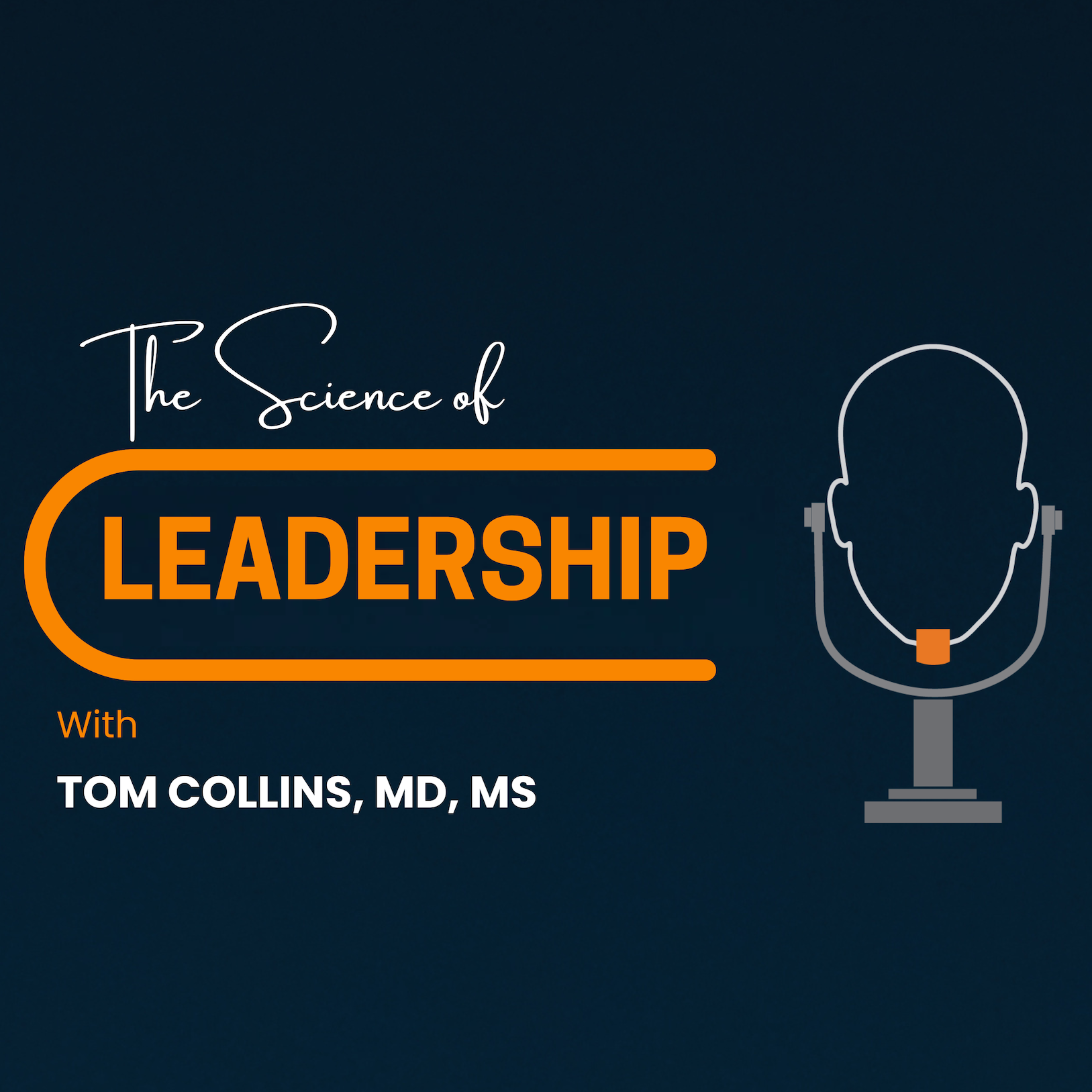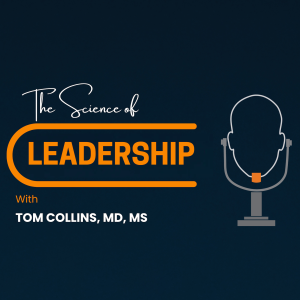
4.4K
Downloads
49
Episodes
The Science of Leadership is the podcast for listeners who want to build their leadership capabilities, providing valuable knowledge, insightful perspectives, and inspiring stories from expert leaders across various fields. The episodes range from one-on-one interviews with experts to discussions between the host and co-host. All episodes are supported by the latest scientific research in leadership, psychology, and other pertinent fields. Whether you’re an aspiring business leader, a healthcare professional, a community leader, or someone passionate about personal growth, our podcast is designed to equip you with the skills and wisdom needed to lead with confidence and impact. Join us on this journey to become a better leader and make a difference in your world!
Episodes

Tuesday Sep 17, 2024
Tuesday Sep 17, 2024
In this engaging episode of @TheScienceofLeadership, host Tom Collins delves into the critical theme of communication in leadership with expert guest Doctor Lori Armstrong. They discuss the power of asking the right questions to enhance communication, build trust, and improve leadership. Drawing from her healthcare executive experience, Dr. Armstrong shares insights and practical advice for leaders, highlighting the role of curiosity, active listening, and fostering a culture of openness. Their conversation blends real-life examples with scientific insights, showing how thoughtful questioning leads to stronger relationships and better organizational outcomes—a must-listen for anyone aiming to improve their communication skills in leadership.
Dr. Armstrong holds a Doctor of Nursing Practice from Drexel University and has led at top institutions like Kaiser Permanente and Stanford. Now CEO and Chief Clinical Officer of Inspire Nurse Leaders, she helps equip nurse leaders for success. She serves on national boards and has received honors like the Silicon Valley Woman of Distinction award.
Key concepts in this episode include communication, leadership, asking the right question, clarity, understanding, care, trust, relationships, growth, critical thinking, problem-solving, clarification, engagement, participation, competence, autonomy, relatedness, relationships, innovation, curiosity, reflective questions, neutrality, timing, solution-oriented questions
Takeaways
- Asking the right question leads to clarity of understanding and accurate message delivery.
- Asking the right question shows that the conversation is important and that the leader cares.
- Asking the right question can have a profound impact on individuals and their lives.
- Asking the right question builds trust, strengthens relationships, and creates opportunities for growth. Asking the right questions enhances critical thinking and problem-solving.
- Asking questions facilitates understanding and clarification, encouraging engagement and participation.
- Asking questions in a curious and interested manner increases competence, autonomy, and relatedness among team members, fostering stronger relationships and innovation.
- To become better at asking the right questions, tailor questions to the person and context, be clear and specific, ask open-ended questions, be curious and not judgmental, use reflective questions, ask for clarification when needed, stay neutral, time the question appropriately, ask 'what else?', and ask solution-oriented questions.
Key References:
Enhances Critical Thinking and Problem-Solving
- Tofel-Grehl, C., & Feldon, D. F. (2013). Cognitive task analysis-based training: A meta-analysis of studies. Journal of Educational Psychology, 105(3), 763–775. DOI: 10.1037/a0033455.
- Paul, R., & Elder, L. (2006). The Miniature Guide to Socratic Questioning. Foundation for Critical Thinking.
Facilitates Understanding and Clarification
- Janssen, O. (2005). The role of frustration in communication: A theoretical framework. Academy of Management Review, 30(4), 723–739.
- Brownell, J. (2012). Listening: Attitudes, Principles, and Skills (5th ed.). Pearson Education.
Encourages Engagement and Participation
- Deci, E. L., & Ryan, R. M. (1985). Intrinsic Motivation and Self-Determination in Human Behavior. Plenum Press.
- Koestner, R., Ryan, R. M., Bernieri, F., & Holt, K. (1984). Setting limits on children's behavior: The differential effects of controlling vs. informational styles on intrinsic motivation and creativity. Journal of Personality, 52(3), 233–248.
- Ryan, R. M., & Deci, E. L. (2000). Self-determination theory and the facilitation of intrinsic motivation, social development, and well-being. American Psychologist, 55(1), 68–78.
Builds Stronger Relationships
- Reis, H. T., & Shaver, P. (1988). Intimacy as an interpersonal process. In S. Duck (Ed.), Handbook of Personal Relationships: Theory, Research, and Interventions (pp. 367–389). Wiley.
Fosters Innovation
- Edmondson, A. C. (1999). Psychological safety and learning behavior in work teams. Administrative Science Quarterly, 44(2), 350–383.

No comments yet. Be the first to say something!